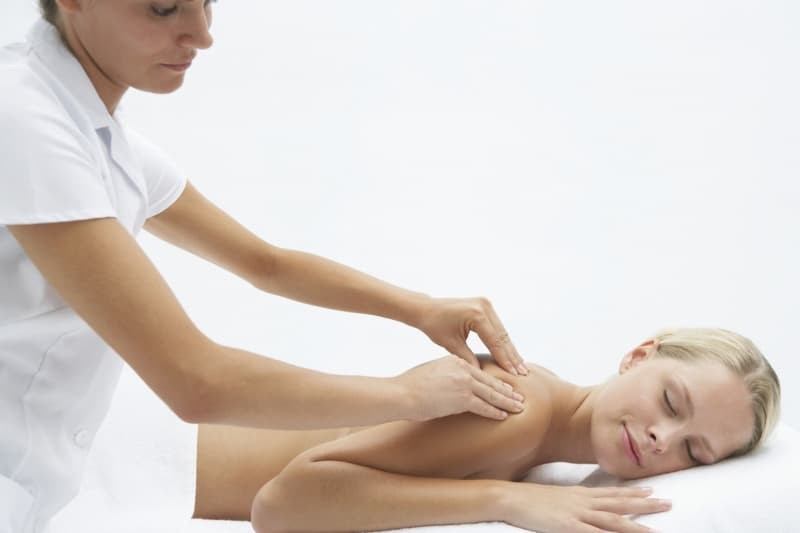
The body is a fascinating instrument with intimate connections between muscle, fascia, joints and nerves. It can be strong and flexible, but also tight or weak. If you are physically active or have ever had an injury from sport or everyday living, you will be well aware of the interplay of these different parts.
It may have captured your attention so much that you are considering a course of study to learn more about how to treat injuries, pain or dysfunction. If you like the idea of a hands-on, therapeutic approach you may consider myotherapy.
What is myotherapy and what are its benefits?
Myotherapy is a specialised form of massage therapy that focuses on specific muscles and the areas surrounding them to address pain and tension. A clinical myotherapist performs an evidence-based assessment of the client. Then, they will treat the myofascial pain (myo relates to muscle and fascia to connective tissue that supports and separates muscles) using a wide range of manual therapies, including trigger point therapy, soft tissue massage and myofascial release.
Myotherapists can treat a range of conditions including:
- Occupational and sports injuries
- Joint pain or dysfunction
- Shoulder pain
- Tennis elbow
- Pain associated with stress or tension
- Knee, leg or foot pain
- Pain or numbness in the hands or fingers
- Muscle tension
- Headaches or migraines
- Soft tissue injuries
- Neuropathic pain
- Poor posture
- Limited range of motion
- Chronic pain
Why study myotherapy?
There are many benefits to becoming a myotherapist. Apart from improving the quality of life for many people, you have the option of choosing where you want to work. Many experienced practitioners began their careers in medical clinics, sports clubs, rehabilitation facilities and spas, among other places. Having the chance to work in a range of healthcare settings will enable you to apply your theoretical knowledge and practical skills in developing the relevant treatment plans.
Choosing this field of study will also allow you to join a professional association such as the Myotherapy Association Australia or Massage & Myotherapy Australia, two of Australia's peak myotherapist groups.
Setting up your own private practice is another thing you can do, regardless of whether it is in your house or in an affordable office space. This will give you the flexibility to manage your own schedule and rates, while addressing the complex conditions of people from all walks of life. It is very rewarding and fulfilling to be able to relieve people's pain through the use of your hands.
What are the options for studying myotherapy?
There is currently a degree level myotherapy qualification, and also a diploma qualification. An Advanced Diploma of Myotherapy is a one-year program that hones the clinical assessment skills of students and teaches how to plan and execute a myotherapy treatment in a clinical environment. This course trains students in palpation techniques and the fundamentals of dry needle application and other myotherapy practices. Students are also instilled with interpersonal skills that are highly valued in a myotherapy practitioner.
After earning your diploma, you can go on to provide advanced massage treatment to clients suffering from musculoskeletal pain or requiring sports injury management, rehabilitation, palliative care or treatment for pregnancy-related pain.
You can also use your diploma qualification to gain advanced standing with a bachelor's degree program that focuses on clinical myotherapy, which offers more extensive knowledge in the field. Along with advanced treatment techniques, such as remedial massage therapy, dry needle application and joint mobility through corrective exercise plans, you will study the life sciences that underlie the modality. As well as gaining knowledge of the human body and how it functions, you will also be exposed to the clinical practice of providing musculoskeletal treatment using a wide range of myotherapy techniques.
A bachelor's degree takes about three years to complete for full-time students and longer for part-time students. As a degree-qualified clinical myotherapist, you can address your clients' needs using postural evaluation, orthopaedic assessments, functional testing and neuromuscular techniques. You can also use your hands to feel the spine, joints and the state of muscles, and then interpret all of these in relation to musculoskeletal pain.
How do you choose the best course?
The first thing you need to think about when studying myotherapy is your intended learning outcomes. Do you want to learn the practical application of palpation techniques and myotherapy treatments to find work as quickly as possible? Perhaps you're seeking a course that provides a broader range of study?
Student success is also determined by how you study. A myotherapy course can be taken on campus or from online education providers. Distance education offers flexibility to students who prefer to study at home and schedule their studies around their other commitments.
Of course, you would need to decide what sort of time frame suits you. The bachelor's degree course runs for about four years, but the diploma is a shorter course. Be sure to check the prerequisites for whichever course of study you decide on.
Payment options are another factor to consider before enrolling in a program. The course fees might not be a big concern if you're a health professional earning a decent income. However, students who have just completed year 12 will need financial support.
While completing the study program, you will also be required to gain practical experience in a clinical setting. After finishing, you will have gained a thorough knowledge of anatomy and physiology, and also biomechanics, nutrition and even kinesiology.
Depending on which course you choose, you will learn how to assess a person's body and use soft tissue and joint mobilisation using your hands to diagnose and treat; administer dry needling and electrical stimulation; and prescribe exercises and techniques for pain management.
Myotherapy could be for you if you want to help people on their journey to recovery and a pain-free life.
Originally published on Jan 12, 2011



